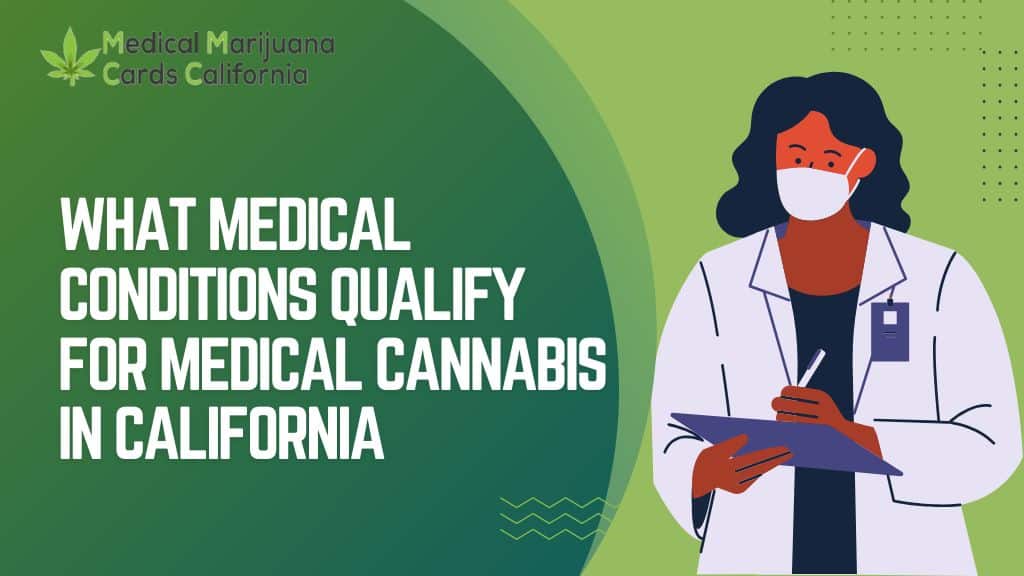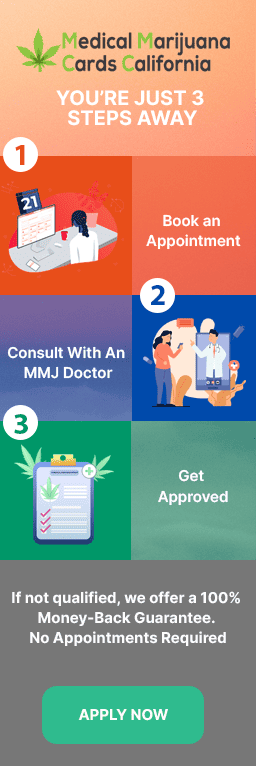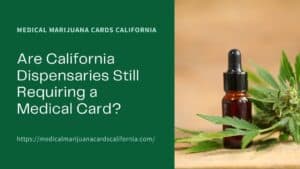There are rules and qualifying conditions regarding the use of medical cannabis in California and its availability to patients and people over the age of 18.
Qualifying conditions for medical cannabis are lists of medical conditions in a state that allow patients to get their medical cards legally. The medical condition that qualifies a person to use medical cannabis varies depending on the state.
This means that to own a medical cannabis card in California, you must be diagnosed by a doctor with a medical condition that qualifies you to use medical cannabis as therapy.
Table of Contents
ToggleConditions That Qualify for Medical Cannabis
Since 1996, when it was the first state to have a medical marijuana program, no other state has had a more active medical marijuana program than California.
In 2016, California legalized cannabis usage for adults, making it the first state to achieve such a feat. In California, the following medical conditions qualify for the use of medical cannabis:
- AIDS
- Arthritis
- Cachexia
- Cancer
- Anorexia
- Chronic pain
- HIV
- Seizures
- Migraine
- Severe nausea
- Muscle spasms
- Glaucoma
- Any other long-term or recurring medical condition that makes it hard for a person to do essential life activities.
All You Need to Know About the Medical Cannabis Program in California
- To qualify for medical cannabis in California, patients must be 18 years old. If a patient is under 18, their parents or legal guardian must permit it unless the child has been emancipated or declared to be able to care for themselves.
- Patients must show proof of their identities, like a California driver’s license or other government-issued IDs.
- To qualify for medical cannabis in California, the patient must reside in the state and provide proof such as a rental agreement, a utility bill, or a vehicle registration.
- A doctor must diagnose the patient with a medical condition that qualifies for medical cannabis in California.
- Patients must show a physician written proof that medical cannabis is suitable for treating their medical condition.
- To get a medical cannabis ID card in California, patients must apply in person at their respective county offices. They are also to submit the formal application for the program along with a letter of recommendation from their doctor.
Getting a Medical Marijuana Id Card
A doctor’s recommendation must be given before getting a medical card. For a medical marijuana ID card, patients must apply at the county office where they reside and submit the formal application for the program along with a letter of recommendation from their doctor.
You can use the ID cards for medical marijuana for up to a year. A card can be issued to both the main caregiver and the patient.
To obtain a medical marijuana ID card, you have to take the following steps:
- Download and fill out the medical marijuana ID card form.
- After completing the application form, you have to tender the following documents:
I. A doctor’s recommendation
II. Any government-issued ID
III. A utility bill or California motor vehicle registration showing your residency proof.
- You must submit your application personally to your county health department. Afterward, contact them to fix an appointment.
- The ID card comes with a small fee; you will also have your picture taken. Each county’s application fee differs, but it can’t cost more than $100. If you are the main caregiver, you will also have to come along with the patient to the office.
The application fee is reduced by 50% if you get health care through Medi-Cal. You are not to pay an application fee if you get healthcare through a program for medically indigent people. Getting your medical marijuana ID card may take up to 35 days after application.
Use of Medical Cannabis in California: What You Need to Know
If you own a medical marijuana card or ID number, it is vital to know the rules governing the use of medical cannabis in California. Even though the use of recreational and medical cannabis in California is legal, some rules need to be followed.
If you own both concentrate and flower cannabis, you can’t have more than the same amount.
This means that carrying 8 grams of concentrate and the same quantity of dried cannabis flower simultaneously is illegal. If you have 4 g of concentrate, the most dried cannabis flower you can carry legally is 14.25 g.
There are rules regarding the use of medical cannabis in California that apply to people who use cannabis recreationally and those who use it for medical purposes. Some of those rules include the following:
- Smoking cannabis in public is prohibited unless in areas allowed by law. If found guilty, you will be fined, especially if you’re near a government building, public park, main street, or any place where many kids might be.
- Smoking cannabis is not allowed in places where tobacco smoking is prohibited.
- Smoking or eating medical cannabis in California within 1,000 feet of an educational facility, or youth center, is against the law unless you are in a private home and children can’t smell or see any cannabis.
- Using medical cannabis in California while driving is illegal. It is illegal to drive if you’re high on cannabis, and any cannabis you have in your car must be locked up and out of sight. It is against the law for car passengers to use cannabis while in a vehicle.
- You no longer have the right to possess weapons (under amendment II).
- Medical cannabis should be kept outside the reach of children. Treat it like any other medicine and keep it locked up.
Even though using recreational cannabis in California is legal, it is better to sign up as a medical marijuana patient if you can. One could say that the law protects people who possess valid medical marijuana cards.
Conclusion
To be able to purchase medical cannabis in California, you need to qualify for specific medical conditions before being issued an MMJ card. To know if you qualify for medical cannabis in California, talk to our certified MMJ doctors online via video call. After evaluation, if you are qualified, you will receive an MMJ recommendation to use MMJ products and grow plants legally.





